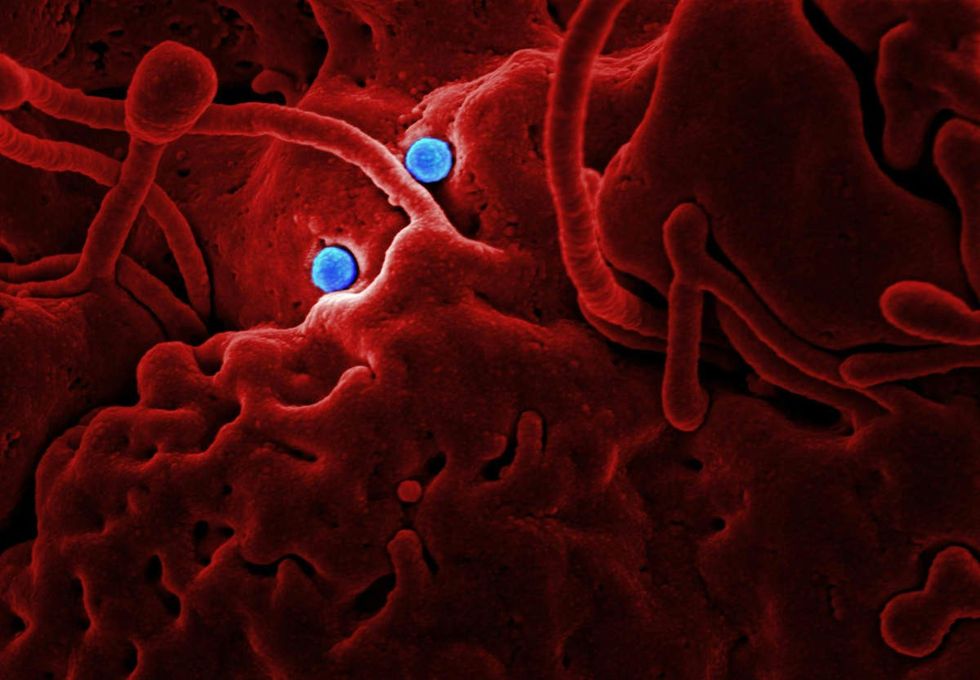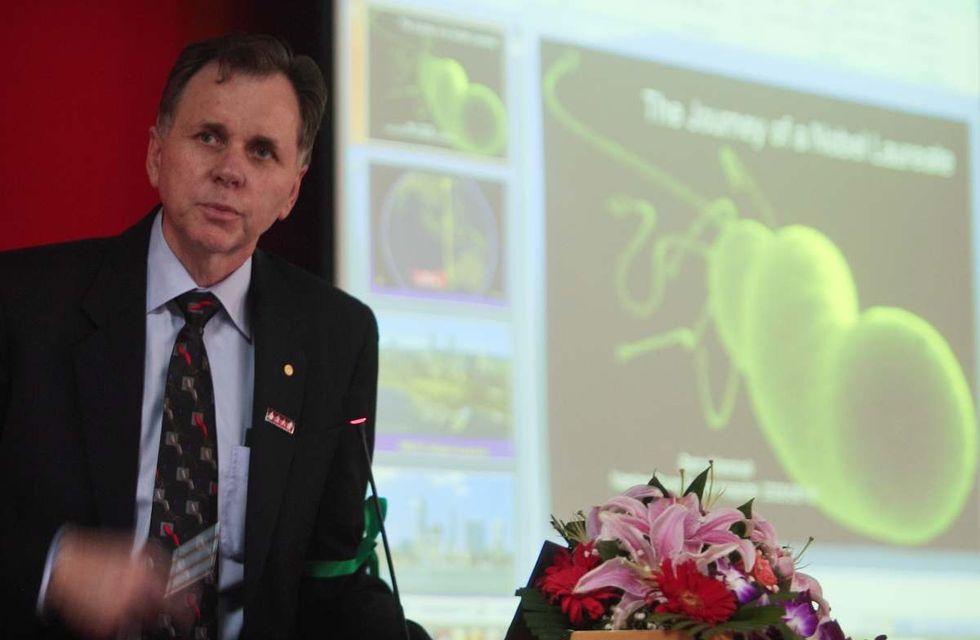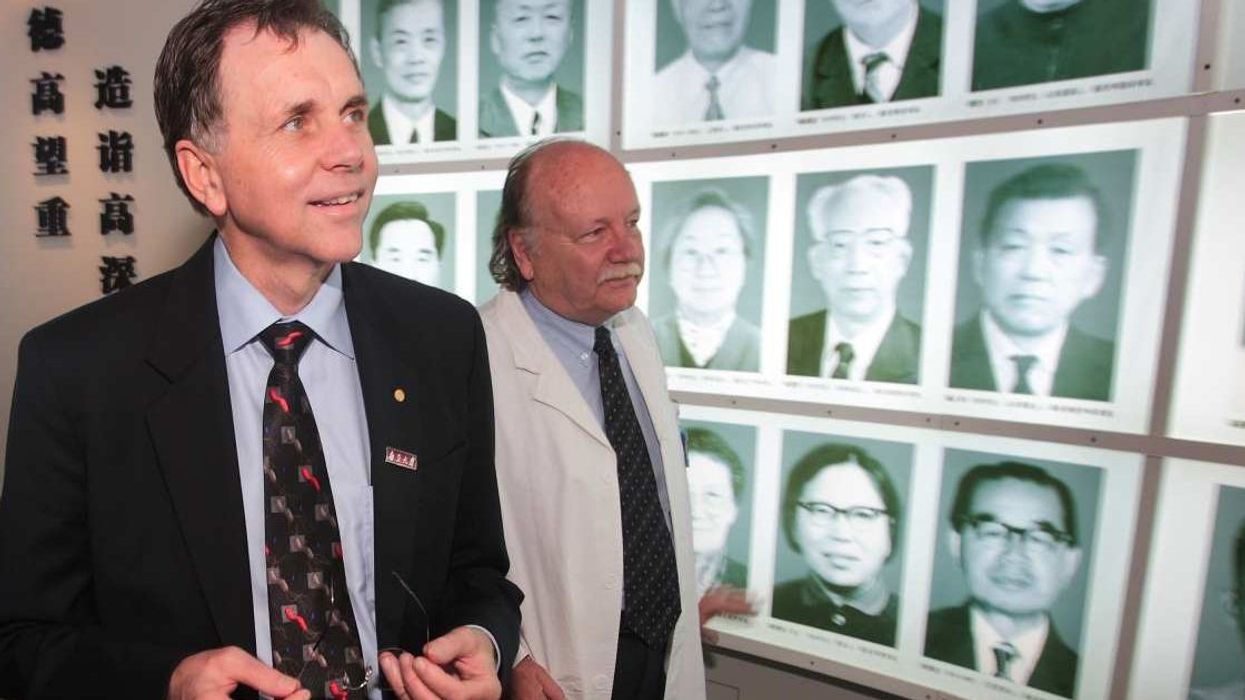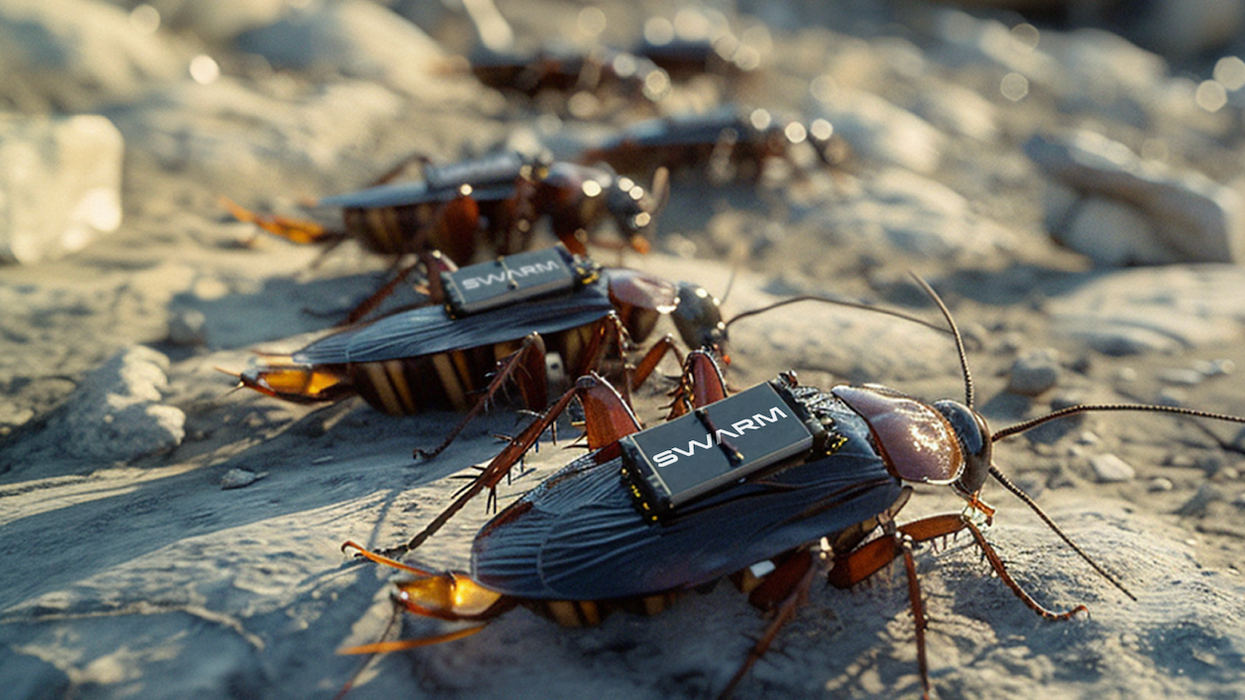Until the discovery of a bacteria called “Helicobacter pylori” in 1982, doctors attributed peptic ulcers to lifestyle choices, emotional stress, and consumption of alcohol or spicy foods. Usually, businessmen who smoked a lot of cigarettes were diagnosed with ulcers during that time. In the following years, two revolutionary pathologists, Dr. Robin Warren and Dr. Barry Marshall, struggled to prove to clinicians and gastroenterologists that the bacteria was the culprit. Most of their initial efforts proved futile and their hypothesis was met with skepticism. So, Barry came up with an unconventional idea: poisoning themselves to create an ulcer and then treat it using antibiotics, hence proving their study. They won the Nobel Prize in 2005, reported The New York Times.
According to News Medical, peptic ulcers are inflammatory sores within the inner lining of the stomach, duodenum section of the small intestine, and sometimes the esophagus, that often cause vomiting. Most of the early doctors considered that the main cause of ulcers was lifestyle choices and accumulated stress, and so they often treated it with acid reduction drugs like Tagamet and Zantac, stress reduction, or bland diets. These medicines often erased the ulcers, but only temporarily. The inflammatory symptoms returned again and again, causing the patient to become addicted to the drugs.

In 1984, Warren and Barry proposed a notion-shattering idea with a paper they published in the British medical journal The Lancet. In the paper, they described that in actuality, a spiral-shaped bacterium called H. pylori was responsible for triggering ulcers and gastritis in people. Warren, an Australian pathologist, had first noticed the bacterium on a gastric biopsy sample in 1979. They suggested antibiotics as the appropriate cure for these ailments. Their study was received with utter criticism and skepticism from fellow doctors and scientists.
“For about 100 years, or 1,000 years, the standard teaching in medicine was that the stomach was sterile and nothing grew there because of corrosive gastric juices,” Warren told The New York Times in 2005. “So everybody believed there were no bacteria in the stomach. When I said they were there, no one believed it.” And so, when no one believed in them, they decided to do something unconventional. Barry came up with the idea of infecting his own body with the given bacteria.

Despite everyone’s resistance, one day, Barry laid out this bacteria in a petri dish, mixed it with his broth, and gulped it down his throat. He went back home from his lab and told his wife about it. “She was like, ‘Oh, my God, you're gonna infect the whole family. That's why you've got such a bad breath. This is a disaster,’” per The American Society of Microbiology. Soon, he was diagnosed with gastritis, the precursor to an ulcer. He started vomiting, his breath began to stink, and he felt sick. Before ingesting the bacterium, he had tested his stomach and didn’t find it there. But after feeling sick, he again lurched to his lab, and checked his stomach, and surely, the H. pylori was there. Hence, it proved that the bacteria was the underlying cause of ulcers.
Barry came to be known as the “guinea pig doctor,” per Discover magazine. In 2005, he and Warren were awarded a Nobel Prize. Fast forward to the present day, the standard cause for ulcers and gastritis is antibiotics. Plus, Academic and industry scientists are actively pursuing a vaccine against H. pylori to ease the world-prevailing ailment, per News Medical.




















 A road near equatorial Atlantic OceanCanva
A road near equatorial Atlantic OceanCanva Waves crash against rocksCanva
Waves crash against rocksCanva
 Older woman drinking coffee and looking out the window.Photo credit:
Older woman drinking coffee and looking out the window.Photo credit:  An older woman meditates in a park.Photo credit:
An older woman meditates in a park.Photo credit:  Father and Daughter pose for a family picture.Photo credit:
Father and Daughter pose for a family picture.Photo credit:  Woman receives a vaccine shot.Photo credit:
Woman receives a vaccine shot.Photo credit: 
 Image artifacts (diffraction spikes and vertical streaks) appearing in a CCD image of a major solar flare due to the excess incident radiation
Image artifacts (diffraction spikes and vertical streaks) appearing in a CCD image of a major solar flare due to the excess incident radiation
 Brady Feigl in February 2019.
Brady Feigl in February 2019.
 Yonaguni Monument, as seen from the south of the formation.
Yonaguni Monument, as seen from the south of the formation. 